Category: McKnight’s Long-Term Care News
Posted by Dr. El - April 7, 2020 - McKnight's Long-Term Care News, Resident care

I live in New York City, the COVID-19 epicenter of the U.S. There are long lines for the few open supermarkets, the parks are closed and the nursing homes in New York are now mandated to accept COVID residents from local hospitals.
I’m in touch with psychologist colleagues from around the area. Some facilities have personal protective equipment for their staff regardless of whether or not they have known COVID cases; others are less prepared and less open with their staff about the coronavirus, increasing the anxiety level of their team members.
I was relieved to see the McKnight’s headline last week, “Trump wants masks on all nursing home workers, temperature checks for all, and separate COVID-19 units.” Finally, I thought to myself. Perhaps facilities in other parts of the country will be spared what we’re going through in New York, where the regulations trailed the virus and 1 in 4 facilities have COVID residents as of last week’s reports. It is, in a word, grim.
To get through, I’m trying to focus on being of service, when I can focus at all.
I’ve been issued an N95 mask and a face shield, and I receive a daily surgical mask. I purchased a cane that folds out into a seat so I can maintain a safe distance from my residents and avoid sitting on anything in their rooms. I put my phone in a plastic pouch that hangs from my neck, for easy access and easy cleaning. I obsessively sanitize my hands. At the end of the day, I wipe down anything reusable.
Despite my frightening garb, my patients are happy to see me. “I’ve been waiting for you!” one man exclaimed. “I have to talk to you.”
For the entire article, visit:

Posted by Dr. El - March 13, 2020 - McKnight's Long-Term Care News, Resident care, Role of psychologists


As the number of coronavirus cases increases around the world, providers may be worried about the emotional impact of the outbreak on residents and how to handle it. One would expect residents to be concerned, given that they’re at higher risk due to their ages, underlying health problems and residence in a communal setting.
Rather than mass panic, my experience and an informal query of my psychologist colleagues suggests that they may not be as worried as you’d think. As of last week, remarkably few of them have raised the issue in psychotherapy sessions (where uneasiness of every kind is discussed).
My colleagues and I speculate that the majority of residents are not unduly alarmed about the situation due to a combination of factors: more pressing problems, successful passage through many prior hardships, fatalism (i.e., “At this age, something’s going to get me”), denial (“it’s happening far away”), and trust that the facility will keep them safe.
Nevertheless, despite their general calm and resilience, it’s perfectly reasonable for residents to have questions and concerns. There will be some who are deeply unsettled by the prospect of the virus, particularly those with anxiety disorders and people struggling with depression. There may also be individuals who have had past traumatic experiences with hospital-acquired infections, isolation precautions, or communicable illnesses such as polio.
Facilities are no doubt reviewing infection control procedures and holding staff education sessions for their employees. To address the emotional needs of residents, add a brief segment to staff training that includes the following suggestions:
- Limit the amount of time residents spend watching the news. There’s no need for them to be exposed to hours of alarming reports on the day room television.
Posted by Dr. El - February 12, 2020 - Customer service, McKnight's Long-Term Care News

 In my first year as a nursing home psychologist, I entered a resident’s room for a session and she invited me to have a seat in her wheelchair, the only surface that was clean and free of belongings. The thought of sitting in a wheelchair freaked me out. Instead, I carried a heavy chair from the day room up and back down the long hallway.
In my first year as a nursing home psychologist, I entered a resident’s room for a session and she invited me to have a seat in her wheelchair, the only surface that was clean and free of belongings. The thought of sitting in a wheelchair freaked me out. Instead, I carried a heavy chair from the day room up and back down the long hallway.
Afterward I contemplated my reflexive fear of that wheelchair. I concluded that my reaction wasn’t about infection control but rather a superstitious belief that I could somehow jinx myself by sitting there. It separated me from her experience and didn’t offer me any protection from the human reality that any one of us could wind up in that chair tomorrow.
I suspect that fear is a primary reason why it’s rare for long-term care leaders to spend a night in their own facilities, despite the wealth of information they could glean about their enterprises from doing so.
Overcoming such apprehensions, trailblazers in this area joined Laura Beck, the Eden Alternative Learning & Development guide, to discuss their experiences with The Sleepover Project on a webinar that is now available on demand here. It will be followed by an upcoming mini-course on how to create a Sleepover Project in other organizations. (Sign up here for the Eden Alternative newsletter to stay informed about the launch date.)
The webinar featured Jill Vitale-Aussem, president and CEO of the Eden Alternative, and Patricia McBride, the VP of Clinical and Compliance at Christian Living Communities/Cappella Living Solutions based out of Denver.
During the course of her career, Vitale-Aussem spent several nights in different LTC facilities in which she has been, variously, a nursing home administrator, CCRC executive director and vice president of operations. McBride convinced her entire leadership team to each spend a night as a resident over one summer.
McBride noted that, with continued promotions, organizational leaders were moving further and further from the day-to-day experience of what it meant to be living and working within the setting. Calling it a “collective empathy experience,” they envisioned this opportunity as a way to increase their understanding of their residents and staff, and to determine what, if any, improvements needed to be made to their facilities. The leaders gleaned more insights through staying one night in their communities than they could have imagined.
For the entire article, visit:
Posted by Dr. El - January 29, 2020 - McKnight's Long-Term Care News, Motivating staff

The Oscars kind of bug me. In the gloom of winter, it can be hard not to notice that the extravaganza is filled with self-congratulatory workers wearing clothes that cost more than the yearly salary of several nursing aides.
Rather than stew, however, about the puzzling priorities of the world, I’ve decided to award my own Oscars.
Drum roll, please…
The award for best Costume Design goes to those workers who rock their uniforms. Holiday-themed ensembles, crisply starched tops, well-groomed hair and a kind attitude all speak volumes about the people who wear them, the pride they take in their work and their willingness to help elders.
Best Production Design goes to the maintenance departments, who manage to keep facilities functioning on an essential level and ensure that the surroundings look top-notch. From repairing air conditioners to fixing dresser drawers to rectifying all the many behind-the-scenes glitches, the maintenance crews renew well-worn buildings, creating inviting, trustworthy foundations for care.
Best Foreign Language Film goes to CMS for their efforts to provide guidance to long-term care operators and staff.
Best Original Score goes to the recreation staff who tirelessly provide musical entertainment, engaging activities and meaningful pursuits in a setting more focused on the health of bodies than on that of minds and hearts. Therapeutic recreation is the soundtrack in the lives of residents.
Best Makeup and Hairstyling goes to the aides who thoughtfully tend to the appearance of their charges, helping residents feel worthy of personal attention and more like their best selves in a frequently impersonal environment. A shout-out to the barbers and hairdressers who come into facilities and work their magic for modest fees for people in need.
Best Documentary Feature goes to the geropsychologists who spend their days talking with seniors about their lives, their loves and their losses, assisting them in navigating medical problems, end of life issues, family concerns and institutional living.
Best Visual Effects goes to the housekeeping staff who transform trashed rooms into sparkling accommodations, keeping residents, families and staff free from contagion and healthcare-associated infections.
Posted by Dr. El - January 14, 2020 - McKnight's Long-Term Care News, Resident care


Ah, January — a moment to consider plans and directions for the upcoming months. Like many people, one of my personal goals is to recommit to mindful eating and wise food choices. While some residents like to rethink their diets as a New Year’s resolution, there are good clinical reasons to review the facility’s menu at any time of the year.
Researchers have found that the diet and the stomach microbiomes of those in long-term care are significantly less diverse and healthy than those of community-based elders, with institutionalized elders eating diets that are higher in fat and lower in fiber.
Not only that, but the alteration in gut microbes are detectable within 24 hours of dietary changes, suggesting an immediate payoff to dietary improvements (and immediate deleterious effects).
Benefits of a diverse menu
Studies indicate that a more diverse, healthier menu can promote healing, reduce inflammation and help to fight infection. Moreover, there’s a line of research suggesting that the foods we eat influence not just physical health, but also mental health and moods. A healthy gut microbiome is associated with better cognition and reduced anxiety, depression and other emotional maladies.
“The tried-and-true advice of a high-fiber, low-sugar, mostly plant-based diet can benefit patients in body and mind,” author Kirsten Weir writes in “The Future of Psychobiotics” (Monitor on Psychology, December 2018).
Posted by Dr. El - December 17, 2019 - Customer service, McKnight's Long-Term Care News, Resident care, Stress/Crisis management

I know, I know, that’s not how the word is pronounced. But as soon as I read about the Danish concept of coziness, I got that darn Will Smith song (“Gettin Jiggy With It”) in my head and I can’t get it out.
Hygge (actually pronounced “hyoo-guh”) refers to the creation of a comforting, convivial environment. Think hot cocoa, warm blankets and crackling fireplaces, with loved ones.
It sounds so charming that I resolved to apply hygge to an upcoming vacation. I decided to mix local sightseeing with a few days saved for the pleasures of cooking, reading a book and watching movies with an occasional bowl of popcorn under a comforter with my family. And, of course, I considered how the idea could be applied to long-term care facilities.
Nursing homes, which could generally do with an increased focus on “home” over “nursing,” have many reasons and opportunities to add some hygge.
First and foremost is the chance to “flip the script” about being in a confined environment. Residents who have infrequent opportunities to get outside under the best of circumstances and even fewer chances during inclement weather, often feel depressed or resentful regarding their confinement. Practicing hygge offers a mental shift from a perception of restriction to one of comfort.
Holiday hygge
During the holidays, residents may observe peers going out for day passes and family members arriving for visits. For those without passes or visitors, using hygge concepts can ease their emotional pain in a kind, simple manner that emphasizes their belonging to a group.
While holiday activities such as seasonal movies and Christmas caroling are wonderful, a hygge approach would suggest adding periods of quieter comforts such as lap blankets, a fireplace video and a story read aloud. Some people might enjoy crocheting or drawing during this communal activity. If the kitchen sent up a batch of warm cookies, so much the better.
Staff hygge
Residents may not be the only ones less-than-thrilled about being at the facility on a holiday. While many staff members consider their LTC jobs a calling and are gracious about being of service to elders on Christmas or New Year’s Eve, others may be disgruntled with the holiday shift and may “leak” their emotions to their charges.
A hygge approach can soften staff resentment.
For the entire article, visit:

Posted by Dr. El - December 3, 2019 - Business Strategies, Depression/Mental illness/Substance Abuse, McKnight's Long-Term Care News
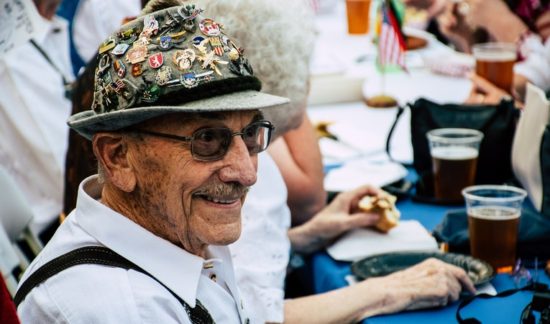
According to researcher Julianne Holt-Lunstad of Brigham Young University, loneliness has a greater impact on health than smoking 15 cigarettes daily, or obesity, which is associated with 300,000 to 600,000 deaths a year in the United States alone.
In England, the “loneliness epidemic” has reached such proportions that they’ve appointed a Minister for Loneliness to address the problem.
This idea led me to consider the benefits of designating such a position in long-term care. Yes, we have recreation departments that encourage resident socialization, but a Minister for Loneliness could do so much more. The Minister also could target staff loneliness and the isolation of those in the community.
Minimizing staff loneliness has the potential to reduce turnover, alleviate staff stress and improve the culture of the organization. Seeking to decrease the isolation of those in the neighborhood would enhance the reputation of the facility as a community player and create a way for locals to connect with the home before they need it, so that it becomes a natural choice for later care.
Below are some ideas of ways in which the Minister for Loneliness could affect change (but there doesn’t need to be a formal role to try these suggestions).
For residents and their families, the minister could:
- Establish a communal table for residents interested in engaging with peers for a particular meal.
- Ensure that residents who needed hearing aids and other assistive devices had fully functioning equipment available.
- Train staff to facilitate like-minded friendships between residents, seating them together at meals and during activities.

Posted by Dr. El - November 19, 2019 - Business Strategies, Depression/Mental illness/Substance Abuse, McKnight's Long-Term Care News
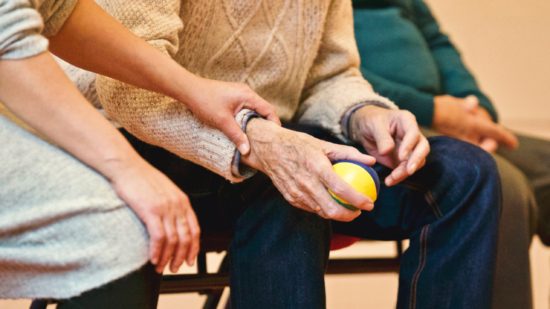
With trauma-related F-tags beginning in less than two weeks, many providers have spent months training their staff and feel quite prepared to manage this sensitive aspect of resident mental health care.
For those who might not be completely ready for the Nov. 28 start date, I offer below some basics on trauma-informed care practices. While none of us know exactly how the survey process will play out, these fundamentals can make it less likely to run afoul of regulations.
The Concept
The general idea of trauma-informed care is that residents who have had exposure to trauma can experience increased sensitivity to interactions in the long-term care setting that “trigger” old feelings and reactions. For instance, Bob, a resident who was physically assaulted several years ago, feels very unsafe and distressed when other residents become agitated.
The Symptoms
An individual who has experienced trauma may have symptoms of Post-Traumatic Stress Disorder (PTSD), such as an exaggerated startle response or repeated intrusive thoughts of the event. Using our example above, Bob shouts loudly in alarm when other residents are noisy or frightening, showing an exaggerated startle response.
The Goal
The new F-tags are an effort to increase awareness that the nursing home environment can trigger past experiences of trauma or exacerbate current traumas and to encourage facilities to make every effort to avoid re-traumatization.
The Interview
The first step in complying with the regulations is to determine whether or not a resident has a current or past experience with trauma. The challenge of the interview is to avoid the possibility that the manner in which the questions are asked becomes traumatizing in and of itself.
To minimize this possibility, hold the interview in as private and discreet a manner possible and “normalize” the process, explaining to interviewees that all residents are being asked about their past experiences.
Increase the interviewee’s sense of control by offering them the option not to answer any items if they feel uncomfortable.
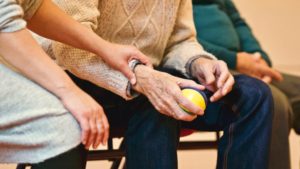
Posted by Dr. El - November 9, 2019 - End of life, Engaging with families, McKnight's Long-Term Care News


The holiday season will soon be upon us and with it will come out-of-town family members visiting their loved ones in long-term care settings.
Early November is a good time to increase the focus and training on customer service so that the facility is performing at its best when those infrequent but important guests arrive. It’s also a suitable moment to consider how to best aid families in discussing end-of-life care for their aging relatives.
Visitors who haven’t seen loved ones in several months may notice a physical or cognitive decline, making them more aware that life’s end is approaching. The holidays are also a time when several family members may be together and can discuss end-of-life concerns in collaboration.
While many residents will have completed advance directives upon admission, there are others who haven’t done so and those whose desires have changed. In addition, there are other details that may need addressing, such as readiness for hospice care, funeral arrangements, a last effort to repair fractured relationships or a chance to say good-bye.
Families invariably need assistance with these conversations and, as those who provide care to the ill and dying, this is a good opportunity to showcase the organization’s compassion and expertise in this area.
For the entire article, visit:
Posted by Dr. El - October 22, 2019 - Depression/Mental illness/Substance Abuse, McKnight's Long-Term Care News
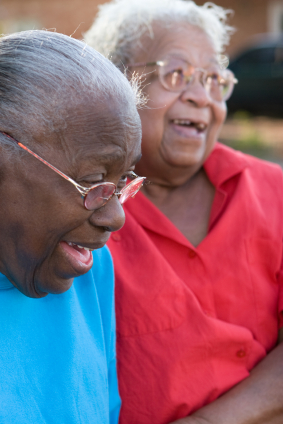
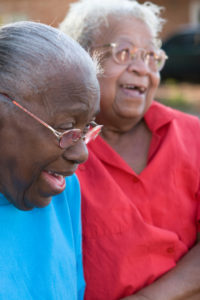
Centers for Medicare & Medicaid Services directives ask facilities to be more attentive to behavioral health issues such resident depression and trauma, and to manage dementia and other behavioral problems while reducing or eliminating psychotropic medications. Providers wondering how to accomplish this tall order might consider turning to a generally overlooked resource — their residents.
Don’t get me wrong. I firmly believe that past traumas, long-standing mental health problems, and depression and anxiety triggered by the tumult of admission should be addressed by mental health professionals such as consulting psychologists like me.
Just as firmly, however, I know that positive connections between residents can alleviate many of the problems associated with physical decline and institutional living.
Shared friendships can give meaning, purpose and joy to the lives of elders, including those with advanced dementia. I know I’m not the only one in the field who has witnessed nonsensical conversations between two confused elders who delight in each other’s presence — and the challenges that come when one of the pair departs.
Moreover, just this week McKnight’s wrote about a study reporting on the success of a peer mentoring program between residents. The “Java Mentorship” offered residents weekly training sessions incorporating 26 different modules, including “how to be a mentor” and “how to support someone who’s grieving.” When they completed the educational program, the trainees visited with other residents who were socially isolated. At the conclusion of the program, the mentors — mostly women about 80 years old — showed significantly reduced feelings of depression and loneliness.
For the entire article, visit:






 In my first year as a nursing home psychologist, I entered a resident’s room for a session and she invited me to have a seat in her wheelchair, the only surface that was clean and free of belongings. The thought of sitting in a wheelchair freaked me out. Instead, I carried a heavy chair from the day room up and back down the long hallway.
In my first year as a nursing home psychologist, I entered a resident’s room for a session and she invited me to have a seat in her wheelchair, the only surface that was clean and free of belongings. The thought of sitting in a wheelchair freaked me out. Instead, I carried a heavy chair from the day room up and back down the long hallway.












